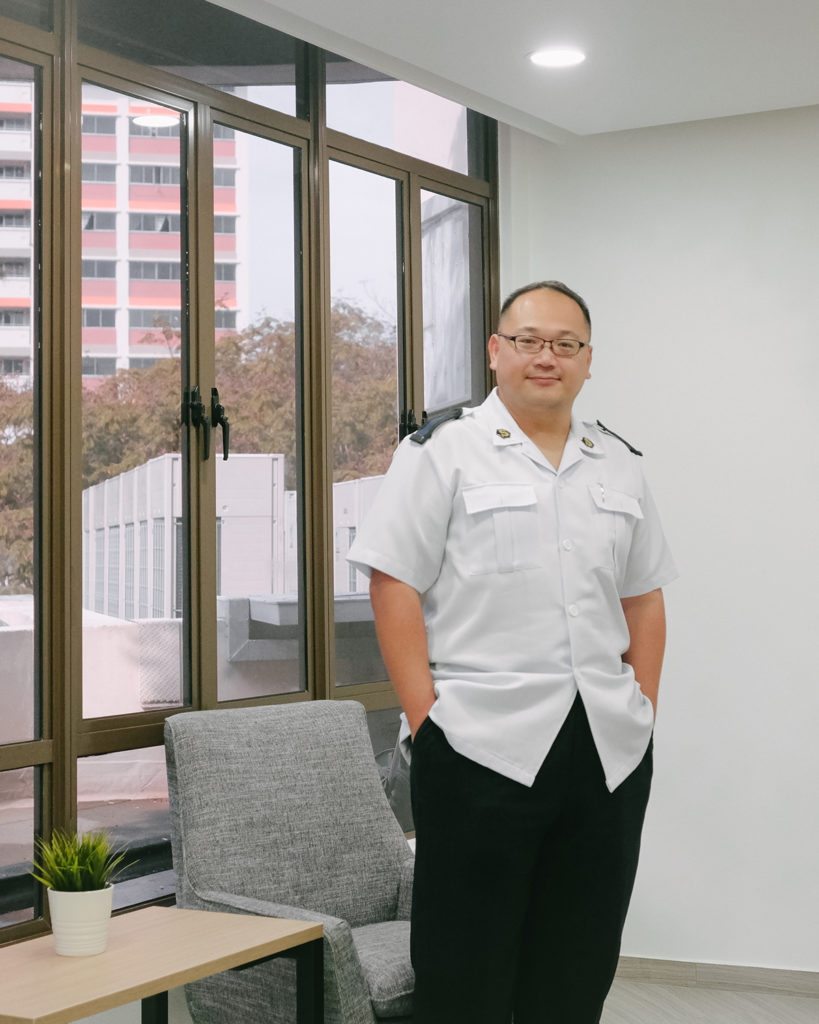
Director, Social & Community Services (Singapore)
& Social Justice Coordinator
The Salvation Army
Halogen’s NFTE Partner since 2015
Few institutions have weathered the test of 150 years of change and The Salvation Army remains one of the few that have emerged and thrived. The Singapore chapter has 83 years of heritage, serving the children and youth, seniors and the general community through all its centres.
Just as the economic and generational landscapes evolve, so has the social context in Singapore in relation to children home services. “Two decades ago if you were to visit our children homes, you will see that a large proportion of young persons in the homes were under the Beyond Parental Control (BPC) ‘statutory category.”, says Marcus, “these were Generation X-ers who received little attention from parents who were making a living. The youth turn rebellious, leading to drastic breakdowns in the family – some parents even charge their own children to court.”. The cases of today are much more complex, “Most of the children are Child Protection Order (CPO) cases. And while BPCs show a lot of anger and resentment to the home, CPOs have every desire to be back at home; they want to be with their families. Due to various pressures of society and amidst complex family issues, that is not possible.”.
These are signs of the crack in familial ties here in Singapore. What Marcus calls “symptoms of stressed up households” are multidimensional for an average Singaporean family – job pressures; discontent in wages and progression; domestic trife and divorce; even increased incidences of domestic helpers being abused. For a young person caught in this environment and dealing with his or her own sets of issues – influence from social media, friends and personal insecurities – many struggle to find a true anchor to their self worth and the potential they are told that they have.
“Young people increasingly know that they are very empowered, that they have a lot more access to tools, information and capability to effect change. But with abundance comes scarcity too – and young people hunger for the guidance from mentors to wield this empowerment.”. The gap between seeking guidance and that of losing autonomy when guidance is given, is what creates much tension in relationships at times. “This is also a gap that the older generation sometimes struggle to understand.”, adds Marcus.
The ability to adapt to these changes and ‘fill the gap’ is ultimately one that starts with mindset change – across individuals, communities and institutions. That is often the hardest hurdle of all. One that will take time, many open hearts and and minds, and lots of willingness to embrace discomfort to attain.
We concluded on the old adage of ‘finding good mentors’ – so what exactly is really ‘good’? Marcus had this to say “Today, there’s just a spew of mentoring programmes and we’re guilty of creating all that choice. I would encourage a young person to dive deep into what’s the right thing to do and with that compass in hand, find the right mentor that matches that.”.
Going beyond empowerment through platforms and skillsets, I think it’s time we invest in making the development of character and mindsets in youth visible for youth. To help them understand the patterns of thoughts that bring greater positive impact to their lives, to know how to discern what’s best for themselves amidst the noise – that is going to be the greatest gift we can pass on.
